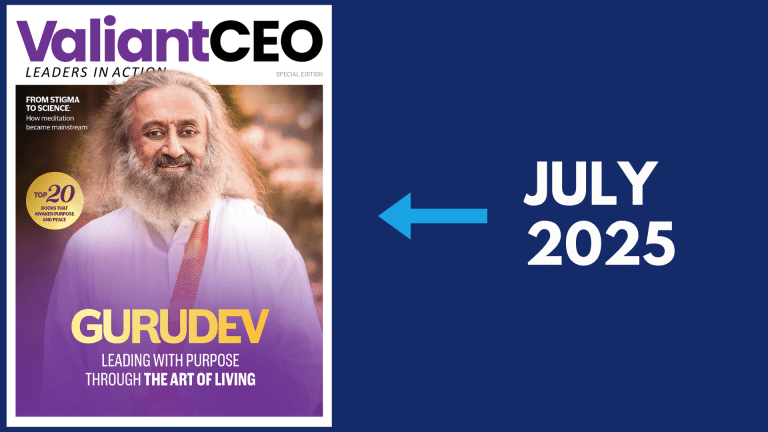I am Danilo Coviello, as the founder of Espresso Translations I lead our company which provides language services to multiple industries. I am a seasoned professional in the translation industry, boasting over a decade of experience. I provided translation services across various sectors, including legal, financial, medical, and technical fields. I have proficient knowledge with Computer-Assisted Translation (CAT) tools. My commitment to tailoring translations to the specific needs of clients and our target audiences ensures that the final product is both linguistically precise and culturally appropriate.
Company: Espresso Translations
We are thrilled to have you join us today, welcome to ValiantCEO Magazine’s exclusive interview! Let’s start off with a little introduction. Tell our readers a bit about yourself and your company.
Danilo Coviello: I am the founder of Espresso Translations, where we specialize in providing high-quality language services across various industries. I handle everything related to translation and project management, with a strong emphasis on using Computer-Assisted Translation (CAT) tools. These tools are essential for maintaining the accuracy, consistency, and efficiency of translations, which is vital when working with clients who need fast and reliable results.
At Espresso Translations, we cater to diverse sectors, from legal and medical translations to technical and financial documents. My job is to ensure that our clients’ needs are met while keeping everything on schedule. Every project requires a tailored approach, ensuring that the final product is both accurate and delivered within the client’s time frame. We aim to make the entire translation process smoother and more efficient for both clients and translators.
What emerging technology trends do you believe will have the most profound impact in the next 5-10 years?
Danilo Coviello: I believe the most significant technological shift in my industry will be the rise of highly advanced AI-powered localization platforms. While much of the current discussion is about machine translation, the more profound change will come from the tools that manage the entire translation and quality assurance workflow. These systems will integrate AI not just for raw translation but for ensuring consistency, cultural appropriateness, and technical accuracy across vast and complex projects.
These platforms will change the very nature of a translator’s work. Imagine a system that can instantly analyze a 500-page technical manual and cross-reference every term with a client’s past projects to ensure perfect consistency. It could flag culturally sensitive phrases or idioms that a machine translation might misinterpret, alerting the human expert to pay close attention to that section. The AI will handle the laborious, data-intensive parts of the job, freeing up the professional linguist to focus on the high-level tasks of creative adaptation and nuanced meaning that only a human can perform.
Can you share a specific technological breakthrough from your company that has the potential to reshape your industry?
Danilo Coviello: We have been developing a proprietary internal system over the past two years that is beginning to change how we manage quality for our largest clients. We call it our Contextual Consistency Engine. This software is not a machine translation tool; it functions as a highly intelligent assistant for our professional human translators, working alongside them to ensure a level of brand voice consistency that was previously very difficult to achieve at scale.
The system works by analyzing a client’s entire library of past translations and public-facing content. It goes beyond simple terminology management and creates a unique “brand voice profile.” This profile maps the client’s specific tone, from formal and technical to casual and conversational. While one of our linguists is translating a new document, the engine provides real-time suggestions and alerts if the tone or style deviates from the established brand voice. It can differentiate between the language required for a client’s legal disclaimers and their social media posts, for instance.
This technology has the potential to establish a new industry standard for quality. Clients will no longer have to settle for just linguistic accuracy; they will be able to demand and receive perfect brand consistency across all languages and content types. It allows us to guarantee that a global company’s identity and voice remain coherent everywhere in the world. This provides a level of brand protection in multilingual communications that has not been systematically available before.
How do you approach innovation while balancing the need for practicality and market readiness?
Danilo Coviello: My view on innovation is guided by a very simple principle: it must solve a real problem for our clients. We do not adopt new technology simply because it is trending. Instead, we first identify a specific bottleneck in our workflow or a recurring client request. Any potential innovation is then measured against its ability to improve the quality, speed, or consistency of our human-powered translation services. If a new tool does not offer a clear and practical benefit to the final product a client receives, we consider it a distraction from our core mission.
Before any new technology is ever used on client work, we subject it to a long period of internal testing. We use it on our own company documents and internal projects for several months to ensure it is completely reliable and effective. Only after it has been thoroughly vetted internally do we introduce it to a small group of trusted, long-term clients in a pilot program. This cautious, step-by-step process ensures that we only integrate genuinely market-ready innovations and add tangible value without ever risking our commitment to quality.
What challenges do you face in integrating cutting-edge technology into existing business models?
Danilo Coviello: The challenge we face when integrating new technology is ensuring adoption across our global network of professional translators. Our business model is not built on in-house employees but on a vast community of highly skilled, independent linguistic experts. These professionals have their own established workflows and preferred tools, and our success depends entirely on their expertise. Any new system we introduce cannot be a rigid mandate; it has to be a welcome improvement for them.
The technology must offer a clear and undeniable benefit to the translators themselves, helping them work more efficiently or produce an even higher quality translation. We have learned that the success of any new tool is less about its technical features and more about our ability to demonstrate its value to our human experts. Gaining the trust and enthusiastic buy-in from our translators is the most difficult and the most important part of integrating any cutting-edge technology into our business model.
How do you foster a culture of innovation within your organization to stay ahead in the tech race?
Danilo Coviello: We cultivate innovation by empowering the people who are on the front lines of our business every day. Our most valuable ideas for improvement do not come from a separate department; they come directly from our in-house project managers and our global network of professional translators. These are the experts who use our systems constantly and have the clearest view of where inefficiencies exist. Our entire company culture is built around listening to their direct experience and treating them as our primary source of innovative ideas.
We created a structured channel for this feedback called our Process Improvement Portal. Every quarter, we formally ask our entire network of linguists and staff to submit detailed suggestions on how we can refine our workflow or enhance our quality assurance steps. We encourage them to identify specific bottlenecks they experience or suggest new features for our internal software that could make their work more efficient and accurate. This creates a regular, predictable opportunity for everyone to contribute to our evolution.






